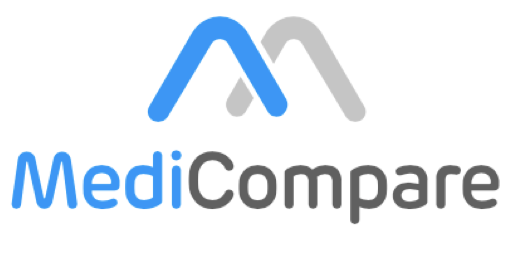Health insurance can be a great tool to protect your well-being and financial stability, as well as your family’s. However, the cost of health insurance can be a concern for many people throughout the UK.
Fortunately, there are several strategies you can use to save money on your health insurance policy without compromising on essential coverage. In this guide, we explore various money-saving tips including group buying, upfront payments, and factors like smoking.
MedicCompare can help you to save money on health insurance by evaluating thousands of deals on the market and finding the one that best suits your needs and budget. MediCompare is an introducer and does not offer advice for health insurance policies. Please always check terms and conditions directly with your insurer.
What Are Some Tips to Help Save Money on Health Insurance?
Group Buying
Purchasing health insurance as part of a group can be a significant money-saving option. This may include purchasing health insurance for your whole family, saving money per head, or even as a couple.
Many employers also offer group health insurance plans to their employees, providing a cost-effective solution with shared risk among a larger pool of insured individuals. You
Group insurance often comes with lower premiums, as insurers negotiate rates based on the collective size of the group. If you work as part of a business or organisation that offers health insurance as an employee benefit, explore this option to see if you may be eligible for health insurance through them.
Paying the Whole Year Upfront
Deciding to pay your health insurance premium for the entire year upfront can lead to some large savings, sometimes even 20% or more. Many insurance providers offer discounts or incentives for annual payments.
By choosing to pay for a whole year instead of paying by month, you not only avoid the hassle of monthly instalments but also reduce the overall cost of your policy. If you end up not making the most of your policy or your needs change, you are legally
Health and Lifestyle
Your health and lifestyle choices can have a significant impact on your health insurance premiums. Leading a healthy lifestyle, being fit, and maintaining a non-smoking status can work in your favour when it comes to securing lower premiums because insurance providers often consider these factors while determining your risk profile.
Non-smokers and individuals with no significant health conditions or pre-existing conditions are generally considered lower risk, resulting in more affordable health insurance rates. This is because they are less likely to need expensive treatments.
Although unfortunately you have no control over your pre-existing conditions, taking the steps to quit smoking indicates to insurance companies that you are less likely to need support for the issues that accompany chronic smoking. If you are struggling to quit smoking, you may benefit from resources such as local Stop Smoking services.
Age Considerations
Age is another factor that can influence health insurance costs. Generally, younger individuals are likely to pay lower premiums as they are considered less prone to certain health conditions. However, as you age, insurance premiums tend to increase due to higher health risks associated with older age.
While you cannot control the age at which you want to take out health insurance, you can anticipate the increasing premiums and plan ahead to start implementing the cost-saving measures mentioned in this article to offset the impact of these rising costs.
Compare and Customise Policies
Insurance policies can vary significantly in terms of coverage, deductibles, and premiums. Take the time to compare different policies from multiple insurers to find the one that best suits your needs and budget, or work with a broker like MediCompare who will do it for you.
We consider your specific health requirements, including any chronic conditions or medications you may need coverage for. This allows you to save money by customising your policy.
Customising your policy to include only essential coverage can help you save money by eliminating unnecessary benefits. This means you pay for only what you will realistically need.
High Deductibles and Copayments
Picking a health insurance policy with higher deductibles and copayments can result in lower premiums. A deductible is the amount you must pay before your insurance coverage kicks in, while a copayment is a fixed amount you pay for each medical service or prescription.
By choosing higher deductibles and copayments, you take on more financial responsibility for healthcare expenses, which can translate into lower premiums.
Periodic Policy Review
Health insurance needs can change over time, especially as your health, family status, or employment circumstances evolve. Review your policy periodically to ensure it still meets your requirements and aligns with your financial goals. Adjust your coverage as needed to avoid paying for benefits you no longer need.
Are There Any Discounts or Incentives Available for Health Insurance in the UK?
Yes, some health insurance providers offer discounts or incentives to help you save money. This includes:
No-Claims Discounts
Some insurers offer discounts on premiums if you have not made any claims during a specified period. This does not mean you should avoid making claims if you need to, but it means that if you generally do not make claims you could see if you can get a better deal.
Family Discounts
If you are insuring multiple family members, some insurers provide discounts for covering more than one person under the same policy.
Loyalty Rewards
Some insurance companies may offer loyalty programs or rewards for staying with them over an extended period. These rewards could include premium discounts, additional coverage or cashback options.
Wellness Incentives
Some insurers encourage healthy behaviours by providing incentives such as reduced premiums or cash rewards for participating in wellness programs, undergoing health assessments, or achieving certain fitness goals.

Can Preventive Care Help Me Save Money on My Health Insurance Policy?
Yes! Investing in preventive care can help you save money on your health insurance policy in the long run because check-ups are cheaper than expensive treatments.
Regular check-ups and screenings can help identify health issues at an early stage when they are typically easier and less expensive to treat. Timely intervention can prevent the development of more serious and costly conditions.
By maintaining good overall health through preventive measures like vaccinations, screenings, and health education, you may reduce the likelihood of needing expensive medical treatments or inpatient care.
Some health insurance plans offer incentives such as discounted premiums or waived copayments for engaging in preventive care activities.
How Do I Negotiate With Healthcare Providers to Lower My Medical Expenses?
When you are searching for a new health insurance plan, MediCompare can negotiate on your behalf for free to get you the lowest deals. However, if you want to do this yourself, here are some steps you can take:
Ask For Itemised Bills
Request an itemised breakdown of the charges to ensure accuracy. Sometimes, errors or unnecessary charges can be identified and potentially removed. This happens a lot during inpatient care, so be especially diligent if you have made a hospital stay.
Ask About Self-Pay or Cash Discounts
If you are paying out of pocket or have a high deductible, ask if the provider offers discounts for self-pay patients or cash payments.
Explore Payment Plans
If you are going through a medical problem that is costing you significant expenses, discuss the possibility of setting up a payment plan with the provider to spread out the cost over time.
Research Local Pricing
Do some research to understand the typical costs of the procedure or service in your area. This knowledge can give you leverage during negotiations, if that is the route you want to go down.
If a procedure or service is not time-sensitive, consider obtaining quotes from multiple providers to compare prices and potentially negotiate a better rate.
Remember that negotiation success may vary depending on the provider, the nature of the service, and your specific circumstances.

